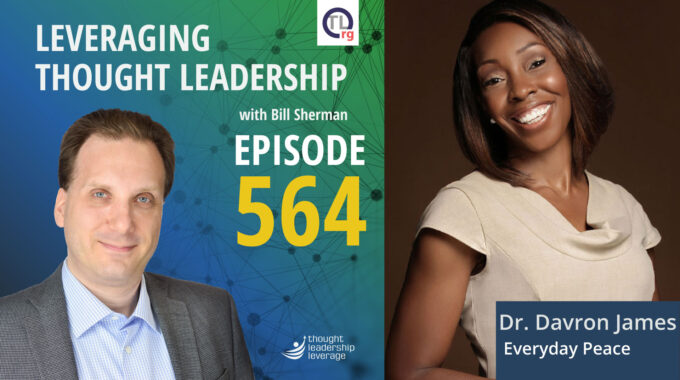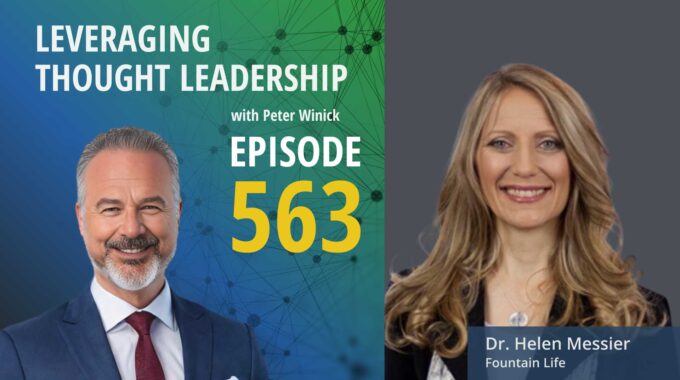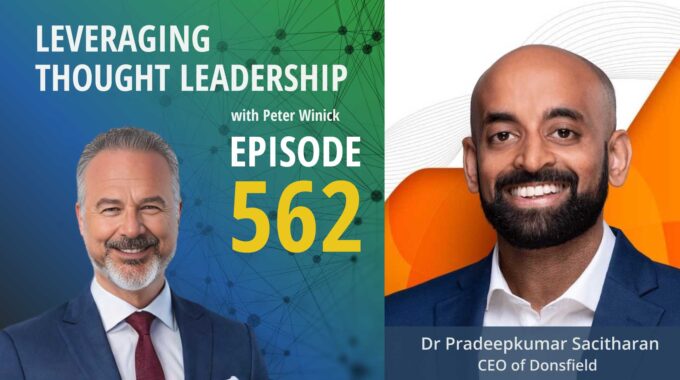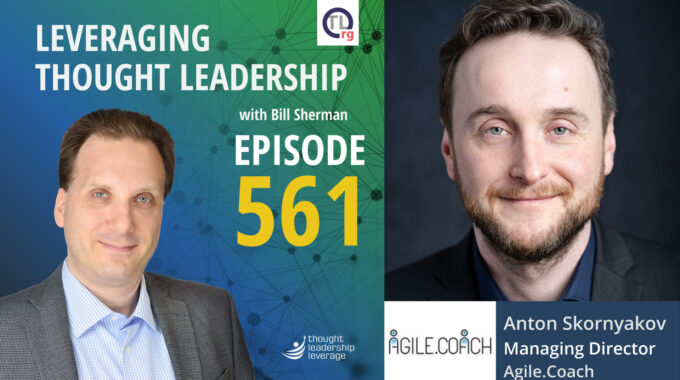Embracing Self-Awareness for Personal Growth and Peace A conversation with Dr. Davron James about her…
Leveraging Thought Leadership With Peter Winick – Episode 131 – Nick Morgan
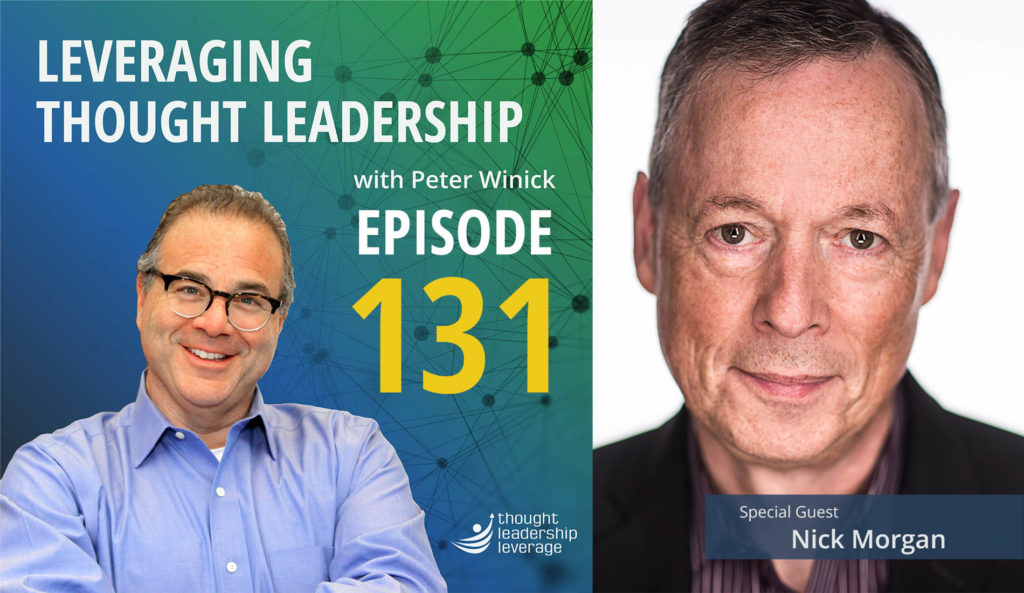
Professional speeches need more than pithy analogies and funny anecdotes. A good speaker must provide actionable takeaways or they won’t be taken seriously. So, how do you find a balance between information and entertainment?
Our guest is Nick Morgan, the world-renowned founder of Public Words, a company that helps clients create content that engages, persuades, and moves people to action. He’s also the author of “Can You Hear Me?” and “Power Cues.”
Nick fills our episode with amazing advice about careers in speaking, and talks about going from entertainment to impactful within the same keynote. He offers tips for engaging and forging a real connection with an audience, and why your personal story could be key.
If you need a strategy to bring your thought leadership to market, Thought Leadership Leverage can assist you! Contact us for more information. In addition, we can help you implement marketing, research, and sales. Let us help you so you can devote yourself to what you do best.


